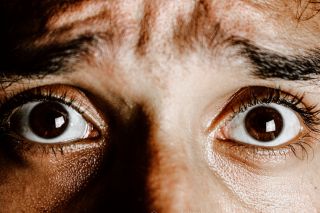Anxiety
Is There Such a Thing as "Good" Anxiety?
Some claim anxiety can be productive.
Posted May 30, 2023 Reviewed by Michelle Quirk
Key points
- We do need some anxiety to function, but prolonged or intense anxiety is always unpleasant and destructive.
- Our emotions are mixed and messy—one reason why we never reach a state of unadulterated psychological bliss.
- Anxiety keeps us alive, but it isn't a nice feeling, and pretending otherwise is likely counterproductive.

A recent article in the Financial Times informs us that anxiety can be a good thing. The article proposes that anxiety can help us focus and that it is a necessary ingredient in a productive life. Without it, we would lounge about aimlessly and achieve nothing.
We need anxiety.
I have no doubt this is true. In fact, as I explain in my book on happiness, we need to feel anxiety to stay alive, let alone anything else. In the same way that physical pain helps us prevent burns and injuries, anxiety (fear) is necessary to avoid situations that would threaten our survival or the survival of our progeny. And, like physical pain, a feeling of fear needs to be alarming and unpleasant. It doesn't simply encourage us to do something to avoid a threat; instead, it demands immediate action.
The authors mentioned in the Financial Times article claim that anxiety is good for us, even though it feels bad. It is good, they say, because it helps us achieve and produce. To sublimate its unpleasantness, all we need to do with it is reframe it, so we can experience anxiety as positive "excitement," rather than negative fear.
It's not the same as excitement.
Labeling anxiety as mere excitement seems a bit frivolous, although this might be a question of semantics to a certain extent. I agree that the apprehensive excitement one may feel while parachuting, or on a rollercoaster, may be enjoyable overall, even though it will contain an element of anxiety. In fact, I argue in my book that our emotions are always inevitably mixed and messy, and this is one of the reasons why we can never reach a state of unadulterated psychological bliss. We are able to feel apprehensive excitement and pleasure simultaneously on the rollercoaster, and sadness and joy together during a sentimental film. In fact, we don't even need to reframe these mixed emotions to be able to enjoy them. But the anxiety of the rollercoaster is contained and self-limited, like an interesting bitter note in a complex and otherwise pleasant dish. This short-lived and fizzy excitement is certainly not the anxiety that cripples the daily lives of so many.
Anxiety can be disabling.
Our age seems to be completely intolerant of any negativity outside the political arena (which seems to be exclusively negative), and, as a result, we appear to need to reframe everything positively, even anxiety. The same Financial Times article recognizes that anxiety can sometimes be a serious problem and states that, according to the Mental Health Foundation, 37 percent of women and 30 percent of men in Great Britain suffer high levels of anxiety. That's roughly one in three, most of whom —I suspect—wouldn't see their anxiety as something they could easily opt to reframe as a type of enjoyable excitement.
There has always been a tendency, I feel, to downplay anxiety, forgetting sometimes that it is meant to be a very unpleasant emotion and that it can be disabling. Even if a little anxiety may help us be more productive, it's important to bear in mind that there is much more to life than producing and achieving. And, of course, if the anxiety becomes persistent or severe, its effect on productivity will be the exact opposite.
There are many things that can be done to combat anxiety, including therapy and medications, but, first of all, we need to acknowledge its true nature. Anxiety keeps us alive, but it isn't a nice feeling, and pretending otherwise is likely to be counterproductive.
References
Kelly J. Why we should not be so anxious about anxiety. Financial Times. May 25, 2023.


